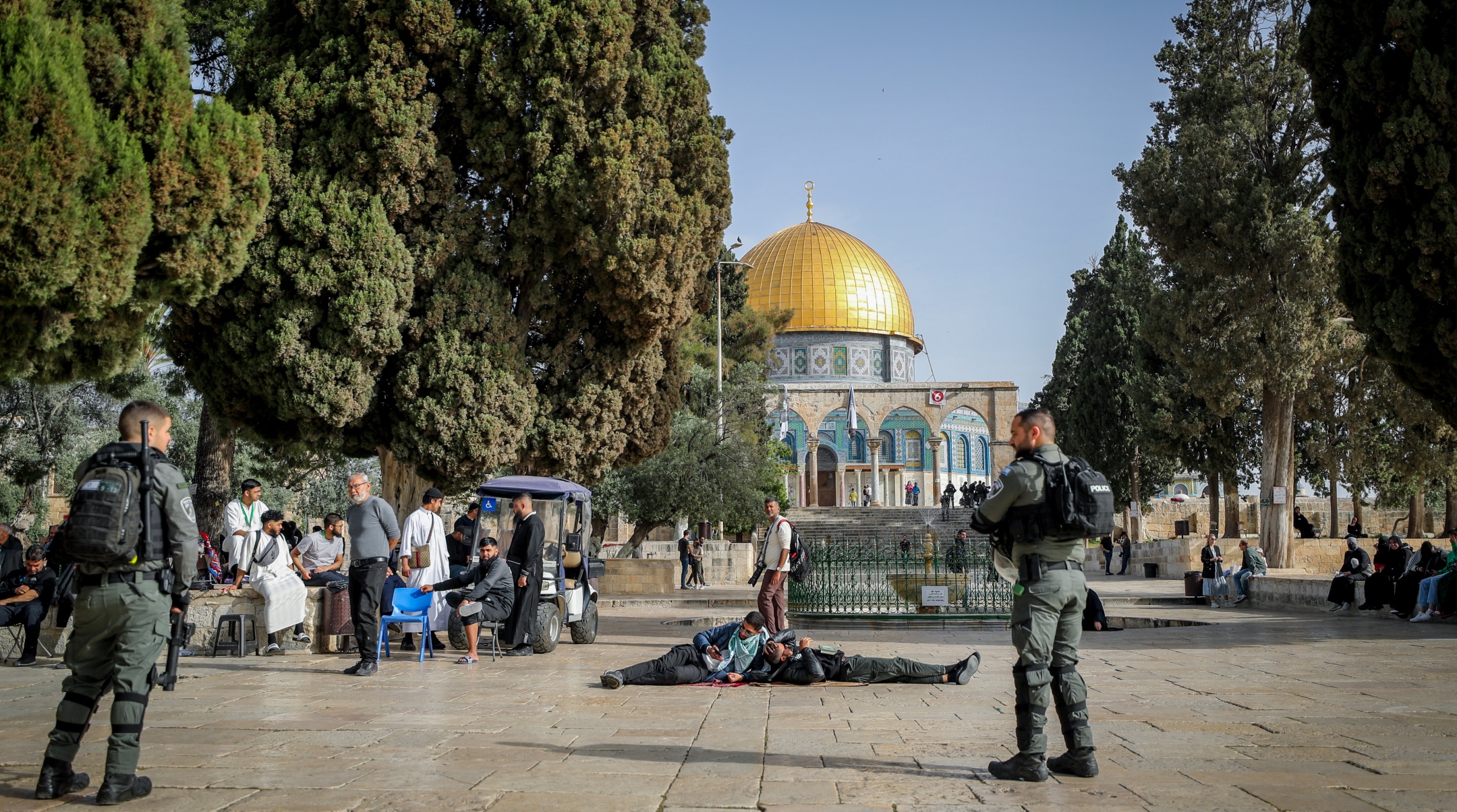Israeli government bans Jews from Temple Mount through end of Ramadan
Notably absent from the “unanimous” recommendation to ban Jewish entry into the Temple Mount during the remainder of Ramadan was the far-right national security minister, Itamar Ben-Gvir

Israeli security forces guard while Jews visit the Temple Mount, in Jerusalem’s Old City, during the Passover holiday the holy month of Ramadan, April 9, 2023. (Jamal Awad/Flash90)
(JTA) — Israel’s government has banned the entry of Jews to Jerusalem’s Temple Mount through the end of the Muslim holy month of Ramadan later this month, a decision prompted by heightened Israeli-Palestinian tensions.
In past years, the mount has been the site of clashes during Ramadan between Israeli security forces and Muslim worshippers. Such clashes took place at the site last week when Israeli forces who were evacuating Muslim worshippers from the Al-Aqsa Mosque overnight were filmed beating them with clubs. The Israel Police are investigating the incident.
Tuesday’s decision also follows a spate of violence in recent days, during Passover, that has included Palestinian terror attacks on Israelis, missiles fired on Israel from militant groups and Israeli military raids in Palestinian areas of the West Bank.
The mount, Judaism’s holiest site, is revered by Muslims as the Noble Sanctuary. Under current regulations meant to prevent unrest, Muslims may pray on the mount and Jews and others may visit at limited times but may not pray publicly.
A “unanimous recommendation” from the Israel Defense Forces, Defense Ministry, Shin Bet and Israel Police “decided to prohibit Jewish visitors and tourists from going up to the Temple Mount until the end of Ramadan,” according to a statement from Prime Minister Benjamin Netanyahu’s office. Eid al-Fitr, the celebration marking the end of the Muslim month of fasting and worship, ends April 23.
Notably absent from that recommendation was the national security minister, Itamar Ben-Gvir, who the statement nonetheless said was present at the meeting. Ben-Gvir is a far-right politician who is a prominent figure in the movement to expand Jewish prayer at the Temple Mount. In January, he staged a walkthrough of the site soon after the new government, and his cabinet position, was in place.
Relations between Israelis and Palestinians have been tense since a series of Palestinian stabbing attacks on Israelis last year was followed by dozens of deadly Israeli army raids into Palestinian population centers. That tension has risen since Netanyahu again assumed leadership of the country. More than a dozen Israelis, and dozens of Palestinians, have been killed in ongoing violence in recent months.
Violence at the Temple Mount has, in the past, rippled out to the broader Israeli-Palestinian conflict. In 2021, clashes at the site led to unrest across Israel and preceded an 11-day conflict between Israel and Hamas in Gaza.
This article originally appeared on JTA.org.















